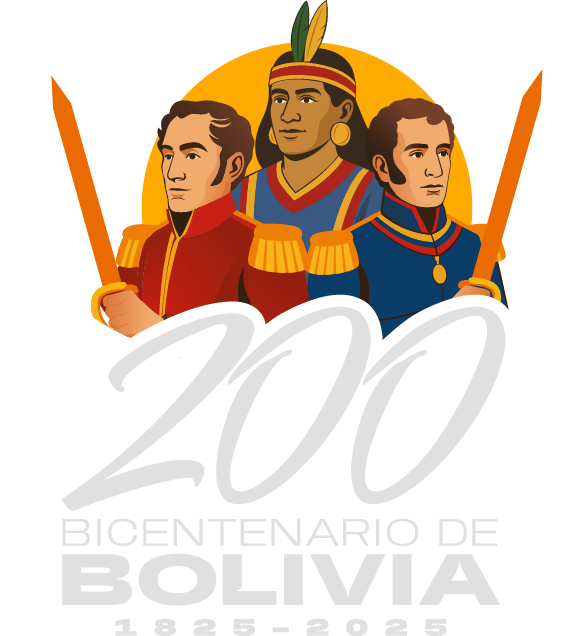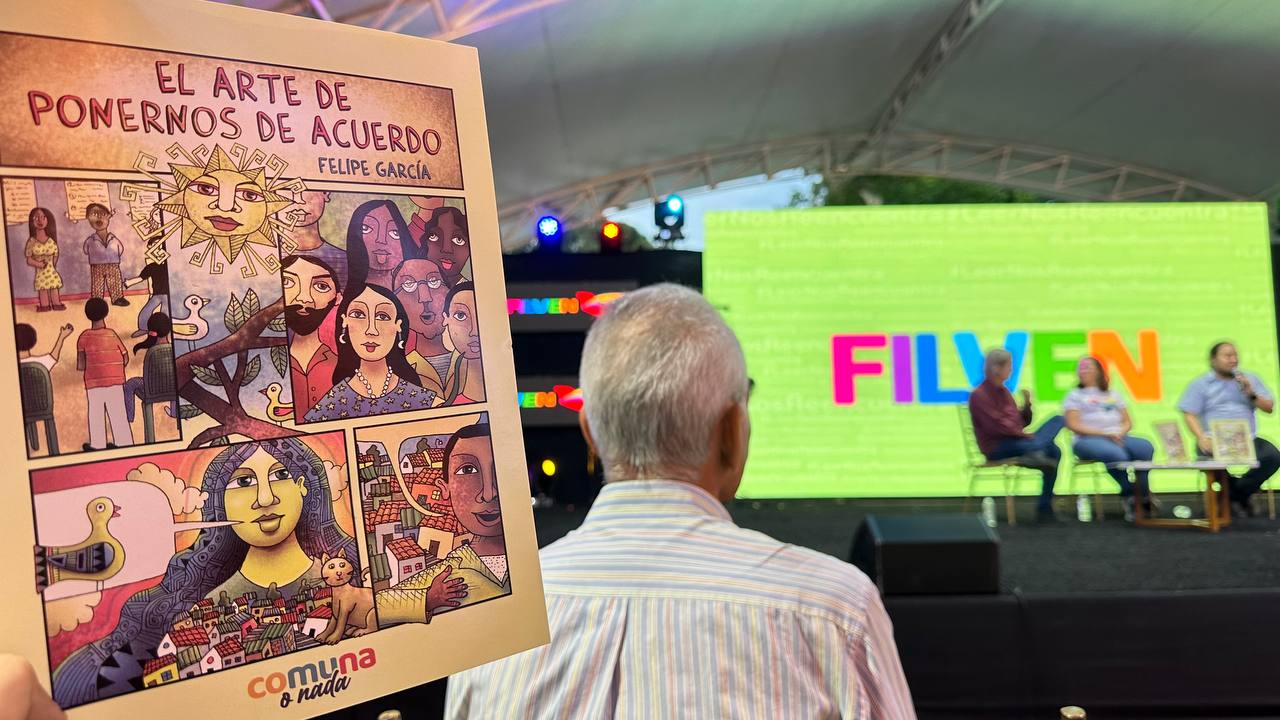Caracas, November 14, 2023 (Mincomunas Press) – This Monday, the International Book Fair of Venezuela (Filven) 2023 was the meeting place for the muralist and illustrator Felipe Garcia to present his literary work entitled “El Arte de Ponernos de Acuerdo” (The Art of Agreeing), christened in the company of the Vice Minister of Communal Economy, Hernan Vargas, and the Vice Minister of the System of Communal Formation and Social Movements, Lidice Altuve.
The presentation of the book began with the intervention of Vice-Minister Altuve, who highlighted that the text “is more vivid today than ever, in the story that Felipe tells, in all the illustrated text that he calls community work,” mentioning that the book offers a methodology that helps to exercise politics from the common and the collective, allowing both aspects “to help us to build consensus in community work.”
At the same time, he indicated that “many practices deepened in the territory, in the exercise of the People’s Power,” are described in the experiences illustrated in the book, affirming that it is a tool and a guide that leads the readers to deepen in the political models for the construction of socialism in the territory.
Vice Minister Altuve mentioned that it is a contribution that serves as a support for those who have responsibilities with their communities since it is an element that raises awareness that “every day we can be much better in this collective practice.”
The Art of Agreeing is a work that was christened in the 19th edition of Filven, being a book that explains, through a simple-to-understand methodology, the appropriate ways of communal organization, besides being a text that “can be used today, but also in 10 years”, since it is a tool that allows the People’s Power planning to “produce organized work, positive balances,” regardless of the time or the country, the author pointed out.
Garcia reaffirmed that the main idea of the writing is to demonstrate that “community work is a work of roots, a work that many times is not seen.” however, “it is with pleasure, with desire, and many times with the awareness that I was able to participate in it,” mentioning that the call is to sow and harvest the fruits of the work in the communities.
During the presentation, the Vice Minister of Communal Economy, Hernán Vargas, added that it is a guide that the People’s Power must appropriate, being one of the “instruments that help in this construction of territorial socialism,” since the illustration “speaks of very concrete tools of that art of listening to us, of that art of reaching an agreement.”
“It is one of those instruments that help build that territorial socialism that Lidice commented, which is the socialism of the concrete, the Commune building new ways of planning, managing and producing, as Commander Chavez stated,” Vargas affirmed.
The methodology represented by the document allows making politics from the ordinary “decolonizing knowledge” and building another way of knowing, helping to recognize the failures in the communities and “advancing in what allows us to build collectively” because it is a systematization of the reality that incites to the reconstruction of the community life.



